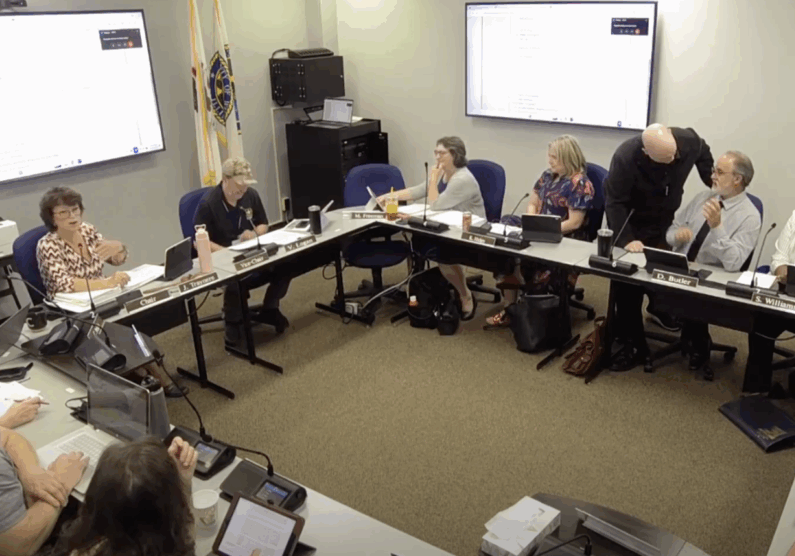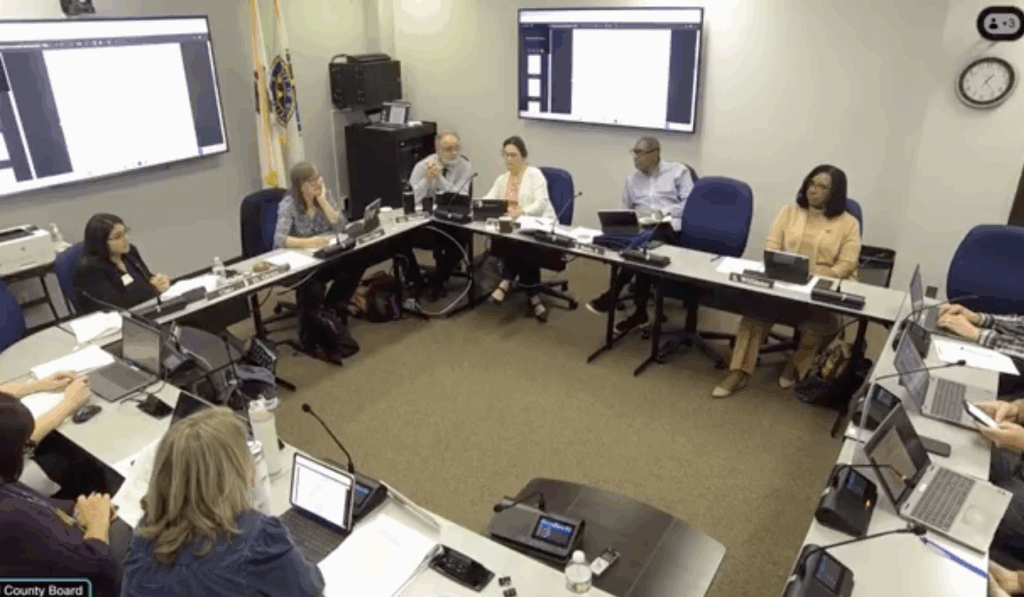
Will County to Draft New Harassment Policy Amid Debate Over Board Authority
The Will County Ad-Hoc Ordinance Review Committee will draft a new, county-wide general harassment policy after a lengthy debate on Tuesday revealed the complexities of the county’s legal obligations and the limits of the County Board’s authority over other elected officials.
The discussion arose during a review of Chapter 39 of the county’s ordinances, which contains the state-mandated sexual harassment policy. Board Member Dan Butler proposed broadening the policy’s title and scope from “sexual harassment” to a general “harassment policy,” arguing the county’s required training course covers a much wider range of protected classes, including veterans and pregnant women.
“I was surprised that it included a lot of groups other than just men and women of a sexual nature,” Butler said. “I just thought our policy should reflect that… to bring a broader understanding of what we’re trying to accomplish.”
However, Phil Mock of the Will County State’s Attorney’s Office, who is guiding the committee’s review, advised against altering the existing policy. He explained that state law specifically mandates a standalone “Sexual Harassment Policy,” and changing the title could put the county out of compliance.
“The reason we use that term is because the state mandated us to use that term,” Mock said. “We don’t want to be in a situation where they said, ‘You just have a general harassment policy, you don’t have a sexual harassment policy.'”
This prompted a deeper conversation about the board’s power to set policy for the entire county. Member Judy Ogalla questioned why some ordinances apply county-wide while others do not. Mock described the county government structure as a “feudal system with a bunch of dukes and not one king,” where each elected official—like the Sheriff, County Clerk, or Coroner—maintains control over their office’s internal operations.
He clarified that the County Board’s authority is strongest on fiscal matters. Policies with direct financial implications, like those concerning insurance benefits or purchasing, are binding. Policies on workplace conditions, however, are largely followed voluntarily by other elected officials.
“As a county voice you can say that,” Mock said, suggesting a separate anti-harassment policy would likely be adopted by other officials. “My belief is all the elected officials will voluntarily follow your policy because that makes it easy on them. They don’t have to make their own up.”
Ultimately, the committee voted to direct Mock to draft a new, separate general harassment policy to be added to Chapter 39. The policy will address protections for various classes as defined by state law and court interpretations. Due to the addition of this new section and other required changes, the committee voted to postpone final approval of Chapter 39 until its next meeting.
Latest News Stories

Station 62 Remodel Advances as Fire District Seeks to Waive Permit Fees

Will County Committee Shapes 2026 Legislative Agendas on Housing, Energy, and Health

New Lenox School District 122 Considers Community Solar Program Promising $55K in Annual Savings

FAA funding problems hit airports in California, elsewhere

Judge bars ICE from acting against ‘protestors,’ ‘rapid response’ activists

Report: IL public schools show low academic proficiency, higher taxpayer funding

Watchdog: Special interest group paid legislators’ $25,000 resort bill

Union Pacific to ask appeals court for biometrics lawsuit exemption

Illinois quick hits: Notices of affected flights; injunction issued over ICE force

Evers, Grisham fly to Brazil for climate change summit as government remains shut down

Upcoming mass flight cancellations worry U.S. air travelers

JJC Authorizes Land Buy for Grundy County Expansion, Secures Site in Morris


